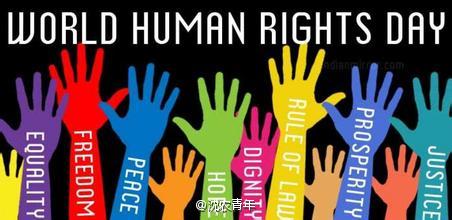中國將堅定走中國特色人權發展道路
China is Committed to a Human Rights Development Path with Chinese Characteristics
中華人民共和國外交部副部長 李保東
Li Baodong, Vice Minister of Foreign Affairs of the People’s Republic of China
2016年12月10日 10 December 2016
來源:新華社 中國外交部 整理:福建啟航翻譯

今年12月10日是第68個世界人權日。聯合國設立世界人權日,旨在銘記兩次世界大戰的慘痛教訓,重申尊重和保障人權,翻開了國際人權事業的新篇章。國際人權事業走過了不平凡的歷程,也取得了重要進步和發展。
Today is the 68th Human Rights Day. It was designated by the UN to remember the hard lessons of the two world wars and reaffirm the need to respect and protect human rights. Its designation opened a new chapter in the international human rights endeavor, which has travelled an extraordinary journey with significant progress.
——68年來,和平權和生命權得到有效保障。新的世界大戰得以避免,不少局部沖突得以控制,世界上大多數國家和地區的人民享有和平與安寧。一大批亞非拉國家擺脫了殖民統治,一切形式的奴隸制度、種族主義均被禁止,保障公民的各項權利和基本自由已成為國際社會的普遍共識。
– Over the past 68 years, the rights to peace and life have been upheld. There have been no world wars, some local conflicts have been contained and peace and tranquility are enjoyed by people in most countries and regions. A large number of Asian, African and Latin American countries have emerged from colonial rule. All forms of slavery and racism have been banned. It has become the prevailing consensus of the international community that the rights and basic freedoms of citizens should be protected.
——68年來,生存權和發展權取得巨大成就。特別是2000年以來,全球11億人脫貧,發展中國家小學凈入學率達到91%,全球5歲以下兒童死亡率下降過半,孕產婦死亡率下降45%,全球可獲取飲用自來水人口增加19億,35億人可使用互聯網。去年9月,聯合國通過《2030年可持續發展議程》,制定了17個可持續發展行動目標,這是一份造福人類的行動清單,也描繪出“不讓一個人掉隊”、“零貧困”的宏偉藍圖。
– Over the past 68 years, great achievements have been made in protecting the rights to survival and development. Since 2000, 1.1 billion people have been lifted out of poverty globally. Net enrollment rate in primary education in developing countries has reached 91%. Mortality rate of children under five has more than halved. Maternal mortality has dropped by 45%. An additional 1.9 billion people have gained access to drinking water. The Internet is accessible to 3.5 billion people. In September last year, the UN adopted the 2030 Agenda for Sustainable Development, which outlined 17 Sustainable Development Goals. An ambitious blueprint aimed at “leaving no one behind” and achieving “zero poverty”, the 2030 Agenda will bring benefits to mankind.
——68年來,國際人權合作蓬勃發展。聯合國制定了9項核心人權公約及上百項國際人權文書,人權理念和實踐不斷豐富和完善。2005年,聯合國將人權同安全、發展一道并列為三大支柱,人權成為聯合國系統工作的重要組成部分。廣大發展中國家推動改革了聯合國人權機構,明確公正、客觀、非選擇性原則是聯合國人權工作的基礎和遵循。
– Over the past 68 years, international cooperation on human rights has flourished. The UN has adopted nine core treaties and over 100 international instruments on human rights. Human rights theories and practises have been enriched and improved. In 2005, the UN identified human rights as the three pillars of its work together with security and development, thus mainstreaming human rights in the UN system. Developing countries have pushed for reform of the UN human rights bodies, and justice, objectivity and non-selectivity have been affirmed as the basis and principles of the UN’s human rights work.
然而,全球人權治理“北強南弱”的格局未得到根本扭轉,人權政治化傾向上升,雙重標準大行其道,個別國家仍借人權問題干涉別國內政。世界不公正、不容忍、不安寧依然存在,全球發展不平衡、不協調、不可持續依舊突出,國際人權事業任重道遠。
On the other hand, there is no fundamental change to the fact that the South has a much weaker voice than the North in global human rights governance. There is also a growing tendency toward politicizing human rights or applying double standards. Some countries are using human rights as a pretext to interfere in the internal affairs of other countries. Injustice, intolerance and instability still persist, and global development continues to be unbalanced, uncoordinated and unsustainable. In short, the international human rights endeavor remains an uphill battle.
人權是各國人民共同追求的崇高理想。世界上沒有放之四海皆準的人權發展道路。在國際人權合作中,各國應恪守《聯合國憲章》宗旨和原則以及國際關系基本準則,尊重各國主權、獨立和領土完整,摒棄政治化和雙重標準;應尊重各國自主選擇的人權發展道路,尊重各國價值觀、歷史文化傳統和政治制度;應平等對話與合作,交流互鑒,共同進步;應推進兩類人權平衡發展,堅持人權普遍性和特殊性、權利和義務、個人權利和集體權利的協調。
Human rights are the lofty ideals of mankind, but there is no universally agreed path to human rights. In international human rights cooperation, countries must adhere to the purposes and principles of the UN Charter and basic norms governing international relations, respect each other’s sovereignty, independence and territorial integrity and discard politicization and double standards. It is important that countries respect each other’s independent choice of human rights path, as well as each other’s values, history, cultural tradition and political system. There should be equal-footed dialogue and cooperation so that countries can learn from each other and achieve common progress. We should also work for balanced development of the two categories of human rights, and strike a balance between the universality and particularity of human rights, between rights and obligations, and between individual rights and collective rights.
中國堅持將人權普遍性原則同中國實際相結合,努力促進經濟、社會、文化權利和公民、政治權利全面協調發展,走出了一條具有中國特色的人權發展道路。中國共產黨和中國政府始終尊重和保障人權,已將此寫入《中國共產黨章程》、《中華人民共和國憲法》和中國經濟社會發展戰略。中共十八大以來,中共中央總書記、國家主席習近平就人權問題作出了一系列重要論述。幾天前,習近平向“紀念《發展權利宣言》通過30周年國際研討會”發來賀信,強調發展是人類社會永恒的主題,國際社會要以聯合國2030年可持續發展議程為新起點,努力走出一條公平、開放、全面、創新的發展之路,實現各國共同發展。這為全面推進中國人權事業提供了基本遵循。經過多年堅持不懈努力,中國人權得到充分保障,中國人權事業邁上新臺階。
By aligning the universality of human rights with China’s national conditions, China has worked for the all-round and balanced development of people’s economic, social, cultural rights as well as civil and political rights, and embarked on a human rights development path with Chinese characteristics. It is the longstanding policy of the Communist Party of China (CPC) and the Chinese government to respect and protect human rights, which has been included in the Constitution of the Communist Party of China, Constitution of the People’s Republic of China and China’s economic and social development programs. Since the 18th National Congress of the CPC, General Secretary of the CPC Central Committee and President Xi Jinping has addressed the human rights issue on a number of important occasions. A few days ago, in a congratulatory letter to the International Seminar on the 30th Anniversary of the Adoption of the United Nations’ “Declaration on the Right to Development”, he stressed that development is the eternal quest of mankind and that the international community, with the 2030 Agenda for Sustainable Development as a new starting point, should strive to realize common development and find a path to fair, open, comprehensive and innovation-driven development. His words provide guidance for advancing China’s human rights cause in an all-round way. Thanks to the unremitting efforts over many years, human rights have been fully protected in China and our human rights cause has reached a new phase.
——中國經濟社會發展水平全面提高。中國解決了13億人民的溫飽問題;減少了7億多貧困人口,占全球減貧人口總數的70%以上,率先實現貧困人口減半的千年發展目標,為人類減貧事業作出了巨大貢獻。中國為7.7億人提供就業,實現9年義務教育全覆蓋,初步形成了世界上規模最大的全民醫療保險體系和社會保障制度,獲得了國際“全球社會保障杰出成就獎”。聯合國發布的《2016中國人類發展報告》贊譽中國是“過去30年發展最快的國家”。
– China has come a long way in its economic and social development. Food and clothing is no longer a problem for the 1.3 billion Chinese people. Over 700 million people have been lifted out of poverty, accounting for more than 70% of the global total. China is the first country to have realized the Millennium Development Goal of halving its poor population; this is a major contribution to the global poverty reduction efforts. At present, 770 million Chinese have jobs and there is universal coverage of nine-year compulsory education. China has the world’s largest universal medical insurance system and the largest social security system and has won the international “Social Security Outstanding Achievement Award”. In its China National Human Development Report 2016, the UN lauded China for enjoying the most rapid development in the past 30 years.
——中國民主法治建設持續推進。中國人民依法享有的民主權利和自由更加廣泛,選舉民主和協商民主相互補充,民主監督質量和實效進一步提高,權力在陽光下運行。人權司法保障水平進一步提高,全面依法治國建設加快推進,司法領域人權保障取得重大進展。目前現行有效法律254部,地方性法規9000多部,已建成中國特色社會主義法律體系。中國支持本國社會組織參與國內經濟社會建設,也歡迎境外非政府組織來華開展友好交流合作。《境外非政府組織境內活動管理法》將于明年1月實施,這將依法保障境外非政府組織在華的合法權益。
– China has made progress in democracy and the rule of law. The Chinese people have enjoyed more extensive democratic rights and freedoms according to law. Elective democracy and consultative democracy are complementing each other, democratic supervision has been made more robust and effective, and the exercise of power has been made more transparent. The judicial protection of human rights has become stronger, and faster progress has been made in promoting rule of law. A socialist system of laws with Chinese characteristics has been established, with 254 laws and over 9,000 sub-national regulations in force. China supports social organizations in taking part in domestic economic and social development and welcomes overseas NGOs to conduct friendly exchanges and cooperation in China. The Law on the Administration of Activities of Overseas Non-governmental Organizations Within the Territory of China will be implemented as of January 2017; it is designed to protect the lawful rights and interests of overseas NGOs in China.
——中國切實保障特定群體合法權利。中國把加快少數民族和民族地區發展擺到更加突出位置,實施了許多特殊政策和措施,讓少數民族在政治上當家作主,在經濟社會發展中享有成果,在繼承發展傳統文化和宗教信仰上享有廣泛自由。中國積極貫徹男女平等的基本國策,發揮婦女“半邊天”作用,支持婦女建功立業,讓每一位婦女都有人生出彩和夢想成真的機會。中國堅持兒童優先的原則,弘揚敬老養老助老的社會風尚,健全殘疾人權益保障制度,切實維護兒童、老年人及殘疾人的權利。
– China has protected the lawful rights of vulnerable groups. The Chinese government gives priority to the development of ethnic minority groups and regions, and has adopted many special policies and measures to help ethnic minorities fully participate in political decision-making, share in the achievements of economic and social progress, and enjoy broad freedoms in inheriting and developing their traditional cultures and religious beliefs. China is committed to the goal of gender equality. We believe women “hold up half the sky”, support women in pursuing careers and give every woman the opportunity to succeed and fulfill her dream. China has followed the principle of putting children first, encouraged greater respect and supporting for the elderly, and stepped up efforts to protect the rights and interests of people with disabilities. In a word, the government has made greater efforts to ensure the rights of children, the elderly and people with disabilities.
——中國積極推進國際人權事業發展。中國全面深入參與全球人權治理,貢獻中國智慧和方案,推動國際人權機構健康發展。2016年10月,中國以180票高票當選人權理事會成員,成為為數不多的四次當選的國家,充分體現了各國對中國作用的肯定。中國認真履行國際人權義務,多次接受國別人權審查和人權公約履約審議。中國與全球近40個國家舉行人權對話與交流,積極開展人權技術合作,已成為國際人權事業的積極建設者和推動者。
– China has actively advanced the international human rights agenda. China has been deeply and comprehensively involved in global human rights governance, put forward proposals, and promoted the healthy development of international human rights bodies. Last October, China was elected to the UN Human Rights Council with as many as 180 votes, becoming one of few countries which have sat in the Council for four times, thanks to international recognition of China’s role. China has honored its international obligations on human rights and cooperated with the Universal Periodic Review and reviews of its implementation of human rights conventions. China holds human rights dialogues and exchanges with almost 40 countries, actively carries out technical cooperation on human rights and is an active force in advancing the international human rights agenda.
——中國向其他發展中國家提供力所能及的幫助。截至2015年,中國共向166個國家和國際組織提供了近4000億元人民幣援助,向69個國家提供醫療援助,派遣60多萬援助人員,為120多個發展中國家落實千年發展目標提供幫助。僅埃博拉疫情,中國就向有關非洲國家提供4批援助,總額達7.5億元人民幣。中國-聯合國和平與發展基金已投入運營,南南合作援助基金正式啟動。中國正在推動“一帶一路”建設,亞洲基礎設施投資銀行已投入運營。作為今年二十國集團主席國,中國將發展問題置于峰會突出位置。中國率先交存氣候變化《巴黎協定》,為協定正式生效作出積極貢獻。中國的發展將為全球人權事業作出新的貢獻。
– China has provided assistance to other developing countries to the best of its capabilities. By 2015, China had provided nearly RMB400 billion of assistance to 166 countries as well as international organizations, offered medical assistance to 69 countries, mobilized over 600,000 assistance personnel and helped over 120 developing countries to achieve the Millennium Development Goals. For the Ebola epidemic alone, China has provided four batches of assistance worth RMB750 million to the affected African countries. The China-UN peace and development fund has been put into operation and the assistance fund for South-South cooperation has been launched. China is advancing the Belt and Road Initiative. The Asian Infrastructure Investment Bank is already up and running. During its G20 presidency, China placed development high on the agenda of the G20. China is among the first countries to deposit its instrument of ratification of the Paris Agreement, helping to bring forward the entry into force of the agreement. As China continues to grow, you will see it make further contribution to the global cause of human rights.
當前,中國正在為實現“兩個一百年”的奮斗目標、實現中華民族偉大復興的中國夢而努力。中國將繼續統籌推進“五位一體”總體布局,協調推進“四個全面”戰略布局,堅持道路自信、理論自信、制度自信和文化自信,努力完成到2020年實現國內生產總值和城鄉居民人均收入比2010年翻番、全民脫貧、人民民主更加健全、法治政府基本建成的目標。中國近期出臺了《國家人權行動計劃(2016-2020年)》、《中國司法領域人權保障的新進展》等一系列重要文件,有效保障人民依法享有廣泛權利和自由,維護社會公平正義,中國的人權事業將在更高水平上得到保障。
The Chinese nation is striving to meet the “Two Centenary Goals” and fulfill the Chinese Dream of national renewal. It will continue to make political, economic, cultural, social and ecological progress, pursue the four-pronged comprehensive strategy, have confidence in its path, theories, system and culture and go all out to meet the goals of doubling its 2010 GDP and per capita income by 2020, completely eliminating poverty, advancing democracy for the people and building a law-based government. China has recently released National Human Rights Action Plan (2016-2020) and New Progress in the Judicial Protection of Human Rights in China. These and other important documents will go a long way toward ensuring the people’s extensive rights and freedoms in accordance with law, safeguarding social equity and justice, and better promoting human rights protection in China.
站在960萬平方公里的廣袤土地上,吸吮著中華民族5000年歷史的文化養分,擁有13億多中國人民聚合的磅礴之力,我們走中國特色的人權發展道路,具有廣闊的舞臺,深厚的歷史底蘊,不竭的前進動力。
Standing on the vast land of 9.6 million square kilometers, nourished by its 5,000-year history and culture and backed by the cohesion of 1.3 billion people, China has a vast stage, profound historical strength and inexhaustible driving force to pursue the path of human rights development with Chinese characteristics.















